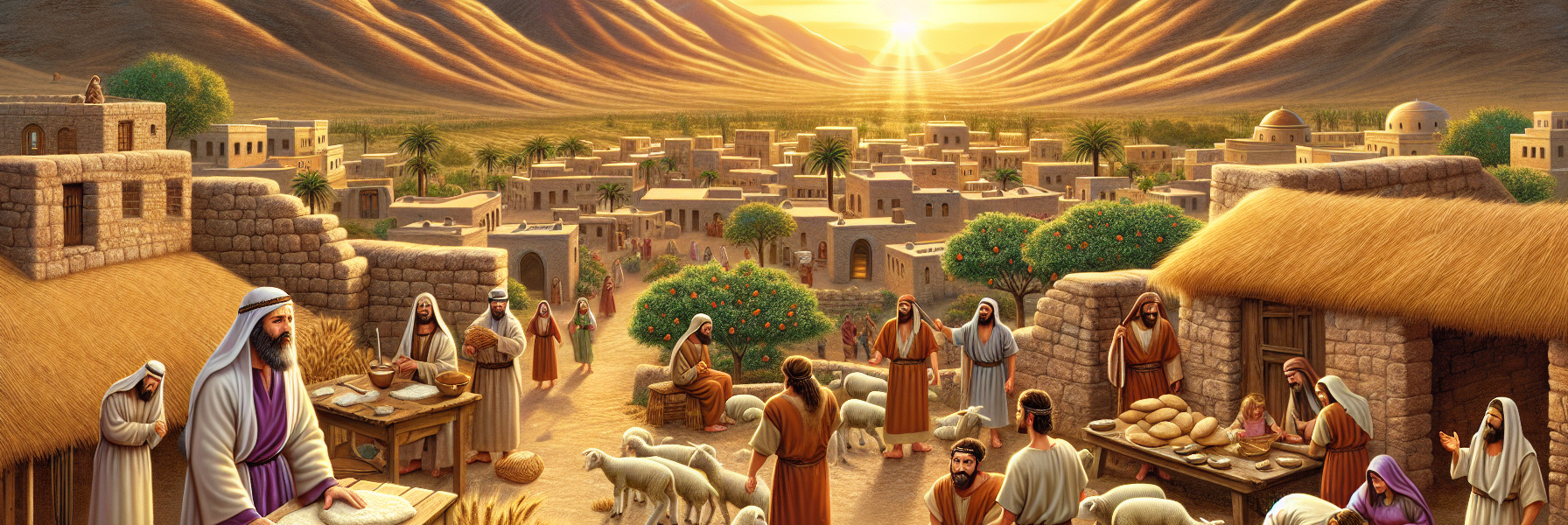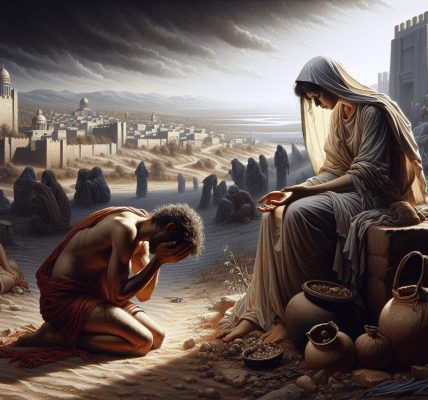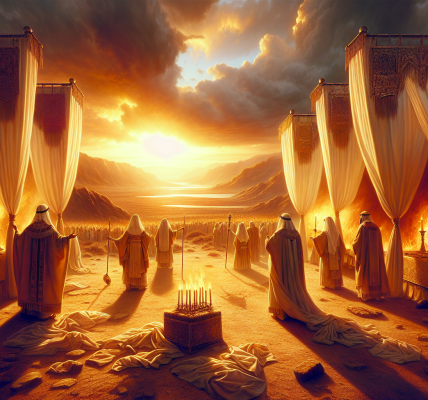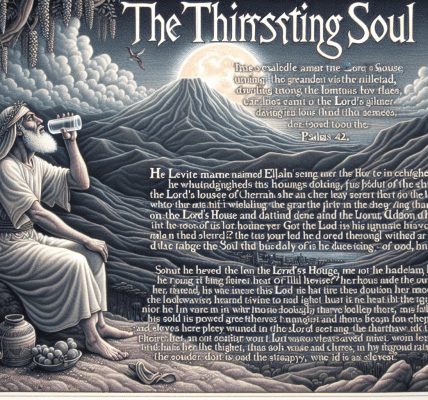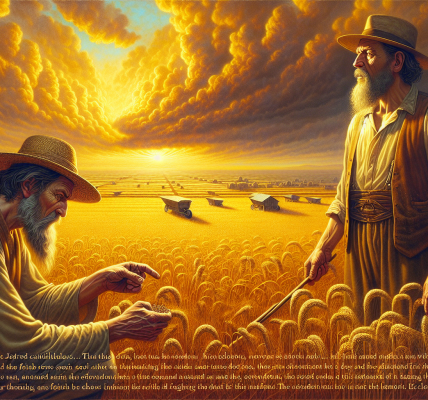**The Feast of Remembrance: A Story of Obedience and Joy**
The sun hung low over the horizon, casting golden rays across the rugged hills of Canaan. The barley harvest was complete, and the first ripe figs had begun to appear on the trees. In the village of Bethany, a man named Eliezer stood in his courtyard, gazing at the bustling activity around him. His wife, Miriam, kneaded dough for the unleavened bread, while his sons, Reuben and Levi, gathered lambs from the flock.
It was the time appointed by the Lord—the month of Abib—when Israel was commanded to celebrate the Passover. Eliezer remembered the words Moses had spoken to the people before they crossed the Jordan: *”Observe the month of Abib and keep the Passover to the Lord your God, for in the month of Abib the Lord your God brought you out of Egypt by night.”*
### **The Journey to the Chosen Place**
Three days before the feast, Eliezer and his family set out toward Jerusalem, the place the Lord had chosen for His name to dwell. The roads were filled with other families, all journeying with the same purpose. Donkeys carried baskets of bread, clay jars of wine, and young lambs without blemish. The air was filled with songs of praise as they walked, recounting the mighty deeds of the Lord—how He had delivered them from Pharaoh’s hand with a mighty arm and an outstretched hand.
As they neared Jerusalem, the city rose before them, its walls strong and its gates wide. The Temple stood atop Mount Moriah, its courts alive with the sound of Levites singing psalms and priests preparing the sacrifices. Eliezer’s heart swelled with reverence. *”No longer shall you sacrifice the Passover in any of your towns,”* Moses had said. *”But at the place the Lord will choose, there you shall offer it.”*
### **The Night of Remembrance**
On the evening of the fourteenth day of Abib, the families gathered in the courtyards near the Temple. The lambs were brought before the priests, who examined them to ensure they were perfect, without spot or blemish. As the sun dipped below the horizon, the Levites sounded the shofar, and the slaughter began. The blood of the lambs was collected in basins and splashed against the base of the altar, a solemn reminder of the night in Egypt when the Lord had passed over the houses marked with blood.
Eliezer and his family roasted the lamb over the fire, just as the Law commanded—no boiling, no breaking of its bones. They ate it with bitter herbs, recalling the bitterness of slavery, and with unleavened bread, a symbol of their hasty flight from Egypt. As they ate, Eliezer recounted the story to his children: *”We were slaves to Pharaoh in Egypt, but the Lord brought us out with a mighty hand. If He had not delivered us, we and our fathers would still be in bondage.”*
### **The Feast of Weeks and the Joy of Offering**
Seven weeks later, when the wheat harvest was complete, Eliezer returned to Jerusalem for the Feast of Weeks. This time, he carried the firstfruits of his labor—a basket of the finest grain, pressed olive oil, and newly made wine. He stood before the priest and declared, *”A wandering Aramean was my father, and he went down into Egypt and sojourned there, few in number. But there he became a great nation, mighty and populous. And the Lord brought us out of Egypt with a mighty hand and an outstretched arm, with great deeds of terror, with signs and wonders.”*
The priest took the basket and set it before the altar, and Eliezer bowed low in worship. The Levites sang, *”Give thanks to the Lord, for He is good; His steadfast love endures forever!”*
### **The Feast of Booths and the Command to Rejoice**
When autumn came and the grapes and olives had been gathered, Eliezer and his family went up once more to Jerusalem, this time for the Feast of Booths. For seven days, they lived in shelters made of branches, just as their ancestors had in the wilderness. The city was alive with laughter and music. Every morning, the priests poured out water at the altar, remembering how the Lord had provided from the rock. Every evening, giant menorahs were lit, their glow illuminating the courts, a reminder that the Lord had been a pillar of fire to guide His people.
*”You shall rejoice in your feast,”* Moses had commanded, *”you, your son, your daughter, your servant, the Levite, the sojourner, the fatherless, and the widow.”* And so Eliezer did. He shared his food with the poor, invited strangers to his table, and gave thanks to the Lord for the bounty of the land.
### **A Legacy of Faithfulness**
As the years passed, Eliezer grew old, but he never ceased teaching his children the importance of these feasts. *”These are not mere rituals,”* he would say, *”but memorials of God’s faithfulness. When you keep them, you remember that you were once slaves, but the Lord set you free. You remember that He gave you this land, not because of your righteousness, but because of His mercy.”*
And so, generation after generation, the people of Israel celebrated the feasts, not out of empty tradition, but with hearts full of gratitude—knowing that the Lord their God had brought them out to bring them in, from slavery to freedom, from wilderness to promise.
**Thus Israel remembered, rejoiced, and remained faithful to the covenant of their God.**
